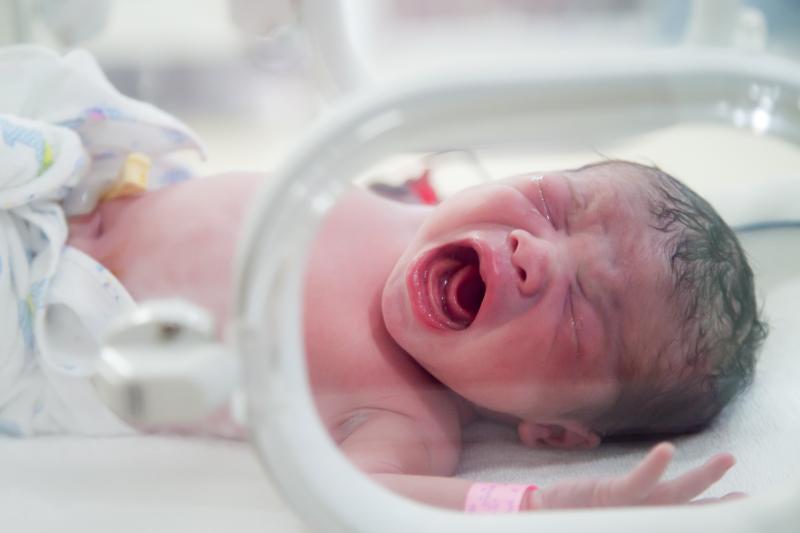
In infants born extremely premature, immunization with palivizumab does not confer apparent protective effects on respiratory symptoms and pulmonary function at adolescence, as reported in a recent study. Nevertheless, immunized survivors of extreme prematurity show good clinical and physiological outcomes.
The study included 64 adolescents (mean age, 15.76 years), among whom 46 survived extreme prematurity (<29 weeks; study group) and 18 were born at term (control group). Of the children in the study group, 17 received palivizumab (PG) and 29 did not (NPG).
Wheezing episodes, inhaler use and hospitalizations were uncommon in the study group. Compared with teens who were born at term, those born extremely preterm had significantly lower predicted forced expiratory volume in the first second (FEV1%) value (mean, 82.60 percent vs 105.83 percent; p<0.001) but similar lung clearance index (LCI; mean, 7.67 vs 7.46; p=0.48).
However, in study group, adolescents with vs without bronchopulmonary dysplasia had a markedly higher LCI (mean, 7.94 vs 7.20; p=0.002). There were no significant differences observed between PG and NPG adolescents.
In the study group overall, airway hyper reactivity detected at primary school age decreased by adolescence. Specifically, significant improvements were seen in mean FEV1% predicted bronchodilator response (0.37 percent vs 5.67 percent; p=0.036) and in mean concentration of methacholine needed to produce a 20-percent drop in FEV1 (PC20; 12.16 vs 4.14 mg/ml; p<0.001).